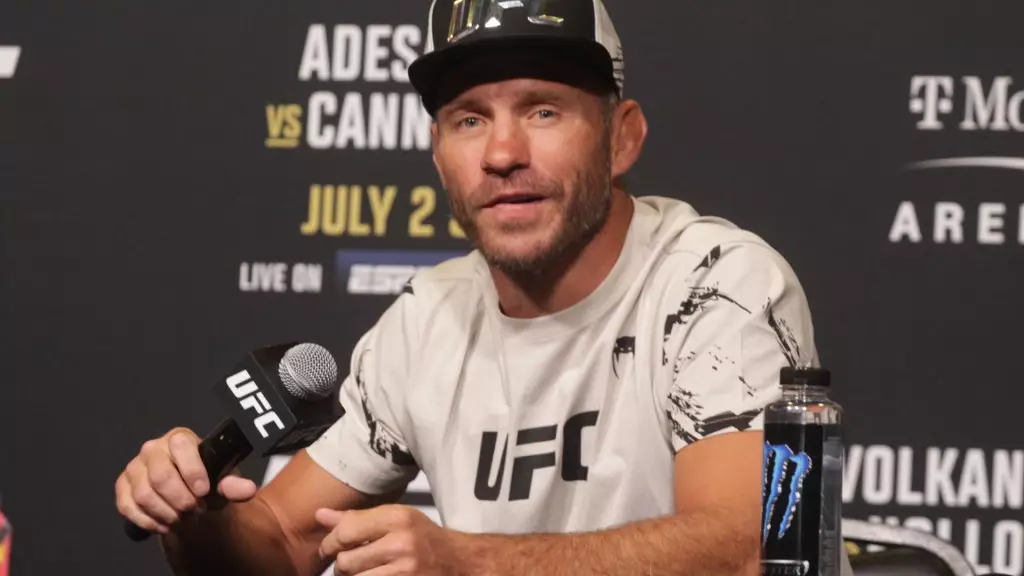The return of notable UFC fighter Donald Cerrone, who recently announced plans to re-enter the octagon after a retirement period, has stirred up significant debate within the mixed martial arts community. His previous openness about utilizing performance-enhancing drugs (PEDs) during his hiatus has drawn sharp criticism, particularly from fellow fighters like Daniel Cormier. The discussion surrounding Cerrone’s comeback opens up larger questions about the ethics of performance enhancement in competitive sports and the implications it holds for the integrity of the sport.
The Landscape of Performance Enhancements in Combat Sports
The use of performance-enhancing drugs is a contentious topic, especially within combat sports where physical prowess can determine the winner. Unlike traditional sports, where performance enhancements can sometimes be masked by subtler metrics, combat sports like MMA directly involve physical confrontation. As the stakes are high, any form of enhancement threatens not just fairness, but also the health and safety of competitors. Cerrone’s candid admissions about his drug use during his retirement period highlight a concerning trend where fighters may exploit loopholes in drug testing protocols.
Cormier’s critique of Cerrone is rooted in a broader concern about the normalization of PED use among fighters. The system allows fighters who step away, whether due to injury or retirement, to bypass drug testing. When they choose to return, they can re-enter these testing pools after a period of “cleaning up,” which raises ethical questions. Is it fair for a fighter to utilize enhancements during their time off to gain an upper hand upon their return?
Cerrone, with a professional record of 36 wins, 17 losses, and 2 draws, carved a notable niche in UFC history. Nevertheless, his recent losing streak, which includes six defeats in his last seven bouts, raises concerns regarding the effects of prolonged inactivity combined with performance enhancements. As Cormier pointedly mentioned, Cerrone’s past performances have already diminished fans’ expectations regarding his capability upon return, especially under the cloud of prior drug use.
Moreover, Cerrone’s application of testosterone replacement therapy (TRT) and peptides while outside the competition suggests a tactical approach to combat sports, further complicating the narrative of athlete integrity. While Cerrone’s openness may seem refreshing to some, it simultaneously sets a dangerous precedent. It blurs the lines between fair competition and a resurgence of ‘old school’ tactics where the most cunning, rather than the most naturally talented, can dominate.
The Implications for Future Fighters
Cormier’s concerns reflect a larger fear within the MMA community—that Cerrone’s actions could embolden young fighters to exit the testing pool and subsequently use performance enhancers without facing immediate consequences. This could create an environment where drug use becomes an acceptable aspect of preparation rather than a transgression, leading to a potential public relations crisis for the UFC and its governing bodies.
As a figure in the sport, Cerrone’s return could send mixed signals to both fledgling fighters and seasoned competitors. His apparent success, aided by prior advantages, raises questions about the meritocracy within combat sports. Is the fighter who has trained diligently and competed cleanly unfairly overshadowed by someone who’s taken shortcuts? The disparity in perceived integrity complicates the sport’s narrative and possibly drives away potential fans who seek authenticity in athletic competitions.
The discussion surrounding Cerrone serves as a crucial reminder of the need for rigorous standards, clear regulations, and effective enforcement in the UFC and beyond. Stricter anti-doping policies and ethical guidelines are vital to preserving the spirit of competition. Societal expectations for fairness should extend to all competitors, ensuring that the best fighter wins not just in skill but in the realm of ethical standing as well.
As fans await Cerrone’s return, the combat sports community must contemplate the long-term implications of performance enhancement. Cormier’s stance underscores the need for honest dialogue about drug use and its ramifications, shaping a future for MMA that prioritizes integrity over mere victory. This will be key in ensuring that the sport remains true to its essence—a true test of talent, strength, and resilience.

